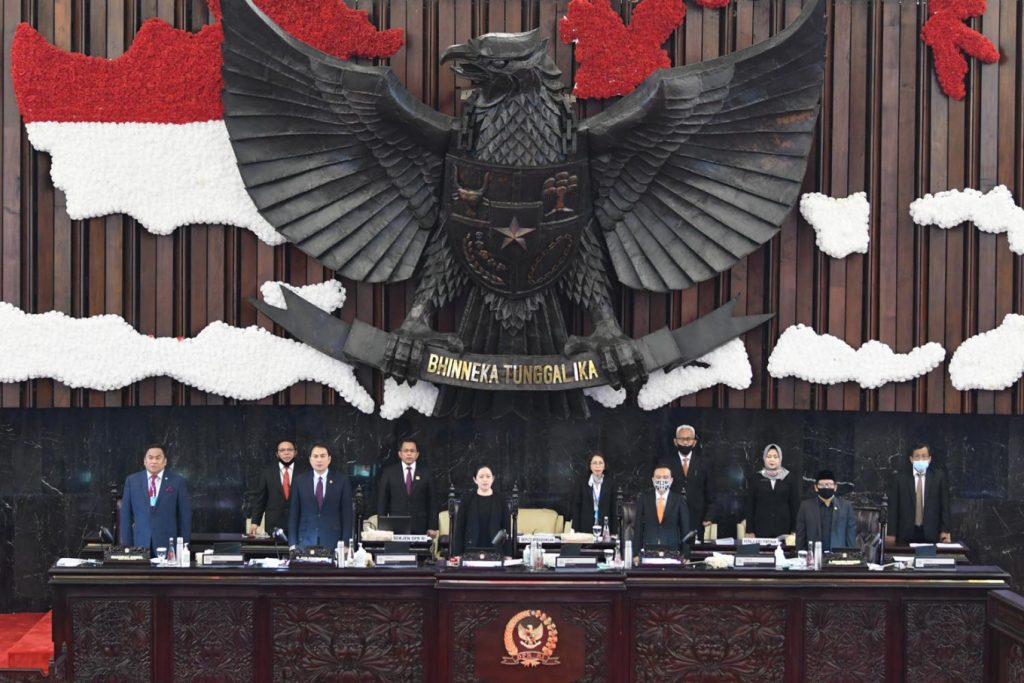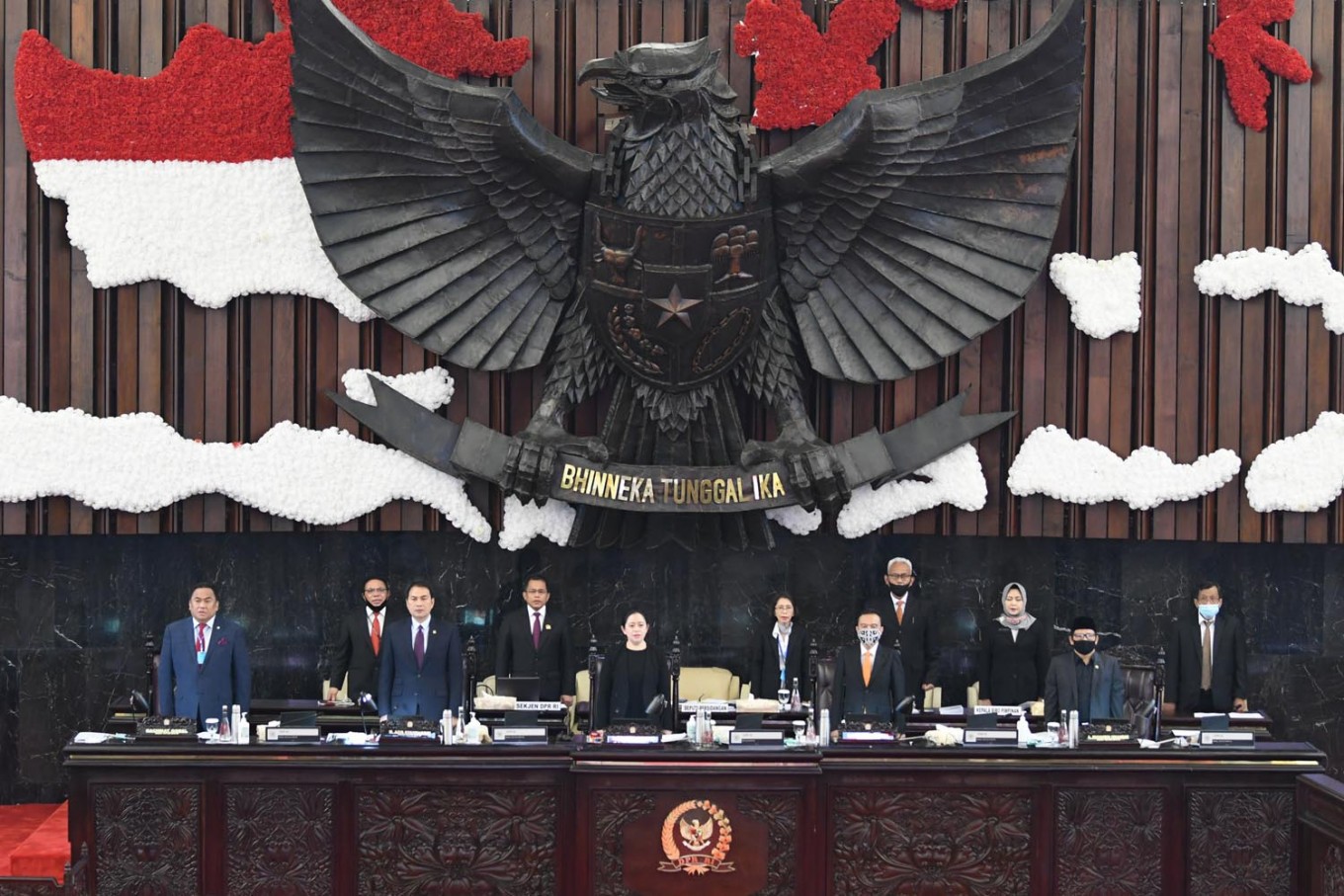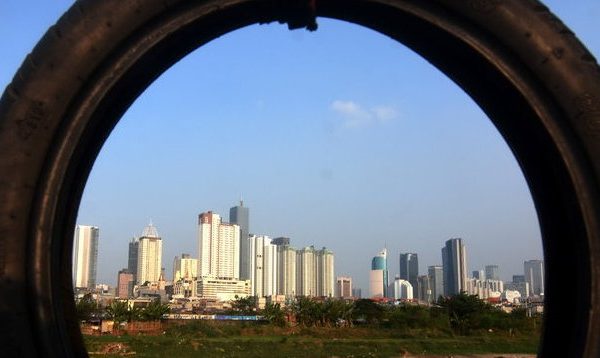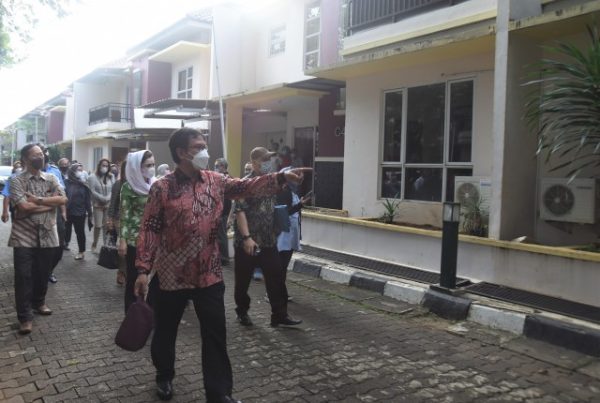Jakarta, 29 Juni 2020

Physical restrictions to prevent the spread of COVID-19 have resulted in the rise of virtual meetings, which have been embraced by lawmakers and officials despite the medium’s novelties and frustrations.
During the first phase of large-scale social restrictions (PSBB) in Jakarta, the seat of Indonesia’s central government, legislative meetings were forced to migrate online.
As restrictions eased, House of Representatives sessions moved to a mix of virtual and physical meetings in a compromise to respect physical distancing measures.
Early in the PSBB period, digital House hearings tended toward chaos as lawmakers jostled with one another for a chance to speak during heated debates. The number of speakers made such meetings last for hours.
One House hearing on state funding lasted for about 9.5 hours, dragged into the night and had to be resumed the next day.
Willy Aditya, the deputy chairman of the House Legislation Body (Baleg), said lawmakers had gradually gotten used to virtual meetings, noting that there had not been any major issues in the adoption of the technology.
“The technical challenges that occurred in the early stages of online meetings have been dealt with quite well. Lawmakers can still use their right to speak under rules similar to those that usually apply during [physical] hearings,” said the NasDem legislator.
“As the COVID-19 pandemic is still ongoing, virtual meetings are a positive way to adapt.”
Prosperous Justice Party (PKS) politician Mardani Ali Sera said adequate preparation for the topic at hand was a key element in ensuring that online hearings ran smoothly, considering how many lawmakers were in attendance.
He said lawmakers were still seeking the right formula to carry out their duties amid virus restrictions.
“We should have simulations to find the best format for working during this pandemic,” said Mardani. “The chair and the commission secretariat play a huge role in maintaining the standards of quality at hearings through thorough preparation.”
Besides limiting the flow of debate, online House hearings are notorious for limiting public participation in the deliberation of bills.
Over the course of the COVID-19 outbreak, lawmakers have passed two bills into law that have sparked outrage for their failure to consider public sentiment: Law No. 2/2020 on the COVID-19 response budget and a revision to the 2009 Mining Law.
Civil groups have taken the COVID-19 budget law to the Constitutional Court over concerns that certain provisions could lead to embezzlement or misappropriation of funds.
The revised Mining Law was also met with a similar response, as industry watchdogs scrutinized its potential impact on the environment.
Virtual meetings have allowed the government to save on goods and services for meetings, incentives, conferencing and exhibition (MICE) activities.
“In the last three months, the government has been able to cut back on a lot of things that in the past were quite normal. We would like to ensure that, in future budgets, this new modality of work can continue,” Deputy Finance Minister Suahasil Nazara said recently.
“That is why, in our design of next year’s budget, we have been very, very strict with the operational expenditures of the government.”
The subdued MICE activities have already been reflected in the government’s spending realization. As of May, Rp 6.2 trillion (US$ 435.66 million) had been spent on official trips this year, a 58.8 percent drop from last year’s Rp 15.1 trillion realization over the same period, according to Finance Ministry data.
The macroeconomic projection and draft fiscal policy (KEM-PPKF) that the government prepared in May has mandated budget reforms that include cutting back on the central government’s non-priority spending, said Finance Ministry expert staffer Yustinus Prastowo.
“Routine spending […] included in the basic spending of ministries and government institutions will be made more efficient. This also accounts for the government’s innovations in work-from-home methods for carrying out its duties,” Yustinus said.
The KEM-PPKF draft is an early version of the government’s annual financial policy before it is presented to the House in August.
Indonesian Forum for Budget Transparency (Fitra) secretary-general Misbah Hasan said the savings on goods and services were a consequence of reduced activity under COVID-19 restrictions.
He urged the government to ensure that such efficiencies remained in place in the future, saying that spending could be redirected toward more pressing programs, such as bolstering the healthcare system and supporting businesses impacted by the pandemic.
“Going forward, [the government] could calculate and reallocate [its budget] to support small business as part of its economic recovery programs, particularly supporting fishing and the SME [Small and Medium Enterprises] sector,” said Misbah.





